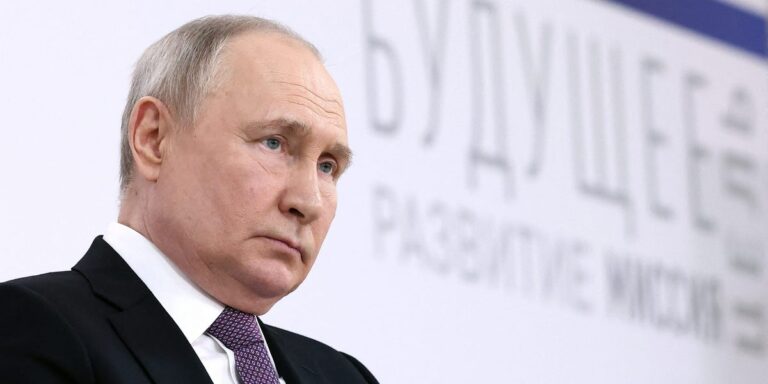- Russia’s war against Ukraine has improved the living conditions of some poor Russians.
- War-related activity helped the economy become more resilient, with GDP growing 3.6% last year.
- High interest rates and an emphasis on the military pose risks to Russia’s economic stability.
Russia’s war against Ukraine is improving the lives of some poor Russians and complicating the calculations of how to end it.
Two years after the start of the war, Russia’s sanctions-hit economy has proven resilient, growing by 3.6 percent. GDP growth rate last year
Reports from Russia indicate that growth mainly Wartime activities generate demand for military goods and services, subsidies stabilize the economy, and astute policy making.
“The Russian economy is becoming increasingly militarized,” researchers at the London-based think tank, the Centre for Economic and Policy Research, wrote in May.
“In Russia’s new war-oriented economy, some sectors and regions have emerged victorious,” they said.
According to CEPR researchers, production in war-related industries increased by 60% from fall 2022 to spring 2024. Over the same period, manufacturing production in other sectors remained flat.
Some of Russia’s poorest regions are benefiting from wealth redistribution.
“The war provided many people with opportunities for social advancement that were unavailable in the decades before Russia’s reintegration into the global economy,” the CEPR researchers wrote, referring to the collapse of the Soviet Union.
Higher wages than the oil industry
Another report published in January by the Bank of Finland found that areas with increasing military enlistment have seen household savings balances rise since the war began. The study found that poorer areas with more men enlisting in the war saw bank deposits increase by about 30% from August 2022 to August 2023, outpacing a 20% increase in other areas.
Rising wealth also means a slowdown in military-related production, which could make it harder for the Kremlin to de-escalate the Ukraine war, one economist told Radio Free Europe on Tuesday.
Andrei Yakovlev, an economist at Harvard University’s Davis Center for Russian and Eurasian Studies, told the media that soldiers from poorer regions currently on the front line could suffer reduced incomes with few opportunities when they return home.
With high salaries comes risk.
The UK Ministry of Defence said in May 500,000 Russian soldiers may have been killed or wounded Since Russia’s invasion of Ukraine in February 2022.
This, combined with a brain drain, has contributed to Russia’s labor shortage, forcing the military to pay more than the lucrative oil and gas industry.
The Russian military offers contract soldiers a flat-rate signing bonus of 195,000 rubles (about $2,200) nationwide, and salaries start at 210,000 rubles a month. By comparison, workers in Russia’s better-paid oil and gas sector earned a nominal monthly salary of about 125,200 rubles in the first two months of the year, according to Bloomberg calculations.
Economic reports from Russia indicate that the country is embroiled in increasing challenges due to the war and its impact on the economy.
Russia’s central bank governor, Elvira Nabiullina, and her team have been successful in stabilizing the economy so far, but cracks are appearing.
Earlier this month, Herman Gref, CEO of Sberbank, Russia’s largest bank by assets, National economy “It is clearly and strongly overheating.” Nabiullina herself said in December that the country’s economy was There is a risk of overheating.
Last week, Igor Sechin, CEO of Russian oil giant Rosneft, complained that high interest rates introduced to curb inflation were making it difficult for companies to raise capital.

